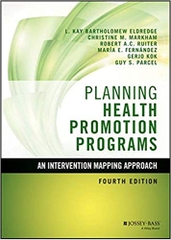-
-
-
Tổng tiền thanh toán:
-
-
Thông tin
-
Tìm sách theo yêu cầu
In the wake of ongoing attacks from postmodern, feminist, Marxist and neoliberal perspectives, to name but a few, urban and regional planning now lacks deeper organising principles for self-understanding, action and critique. Alongside this crisis of identity, and despite ongoing technical and professional advances, urban and regional planning is often far less effective than we might hope. This book seeks a beginning for resolving these problems by providing a clear theoretical position derived from the work of Juergen Habermas. The book examines urban planning as a process of democratic governance, joining practical planning ideas with political philosophy. It explores the primary mechanisms through which collective knowledge is developed and collective steering is undertaken in a planning system, as the core purposes of planning itself. These processes represent certain resolutions of democratic dilemmas, the apparently unresolvable conflicts in the range of competing precepts citizens typically expect any planning system to satisfy. The work begins with communicative planning, but revisits its grounding in the work of Habermas. While communicative planning is one if the most influential recent theoretical understandings of urban planning, it is imperfect in many fundamental ways, and is correctly criticized for its lack of practical exemplars and uses. The book improves upon communicative planning and demonstrates a new applied interpretation of Habermasian theory and political philosophy. The theoretical approach represents a practical and useable framework and can be adapted to a range of other planning systems and settings well beyond those examined in the book, such as corporate or political governance. Further, it is one of only a few analyses that bring together theoretical understandings and grounded and practical analyses of an Australian planning system. The book uses these conceptual tools to report research on the urban planning system of Victoria, Australia. It reveals both conceptual and highly practical explanations of how and why this particular system 'works' and doesn't. The conceptual model and applied research reported in the book demonstrates how specific placed-based understandings, and meaningful comparison between planning systems, might be made. The approach taken in the book will be able to be adapted to other settings. Further, the book is a demonstration of a way for critical theory to suggest positive change to existing planning systems by providing clear normative guidance for planning action, allied with a strong critical lens.
Tại web chỉ có một phần nhỏ các đầu sách đang có nên nếu cần tìm sách gì các bạn có thể liên hệ trực tiếp với Thư viện qua Mail, Zalo, Fanpage nhé
Đăng ký nhận tin qua email
Hãy đăng ký ngay hôm nay để nhận được những tin tức cập nhật mới nhất về sản phẩm và các chương trình giảm giá, khuyến mại của chúng tôi.












